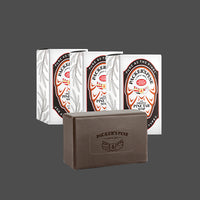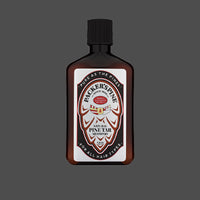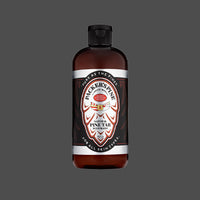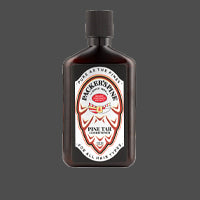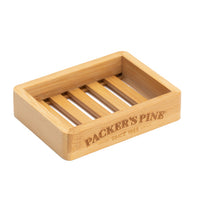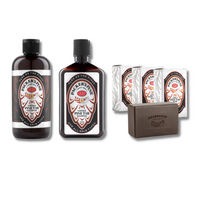Pine Tar Soap for Bug Bites
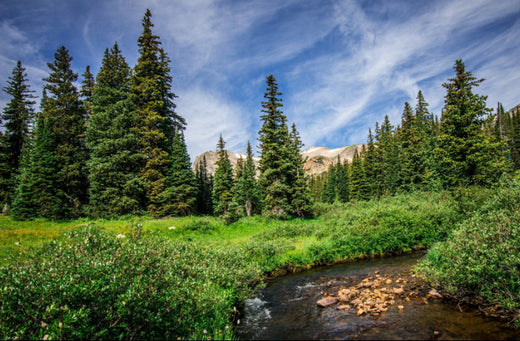
Everyone looks forward to warmer weather; of course, no one looks forward to the big bites that inevitably are part of warmer weather and outdoor fun.
When mosquitoes and other bugs bite humans, they inject a protein into our bloodstream in order to quickly extract the blood they need to survive. This substance prevents our blood from clotting, which would slow down the outflow of blood. This protein is a foreign if mild toxin in our blood and flags our immune system, which causes the release of histamine. This is the body’s attempt to protect us from the toxin, but it is also the process that makes bug bites so itchy and uncomfortable to us.
Pine tar soap for bug bites has generations of anecdotal proof that it can lessen the itch and swelling caused by insect bites. Pine tar soap is an effective and portable solution for camping, boating, hiking, and other outdoor pursuits; not only is it handy for cleaning cookware and utensils, it can be a lifesaver when biting insects abound. There’s also anecdotal evidence that pine tar soap can keep bugs away in the first place.
Bug bite treatment—why does it never work?
People will go to great lengths to try to enjoy a summer evening without the company of unwelcome flying pests. Unfortunately, many popular strategies just don’t work. Ultrasonic bug repellents and citronella candles do little to chase bugs away. Anti-mosquito wristbands? They’ll do as much to repel mosquitoes in the trash as on your wrist. And if you’re trying to repel insects with natural bug repellents, you may need to try multiple formulas before you find one that works for you at all. But what’s the alternative? Wearing long pants and shirts in the sweltering heat? Staying inside? Spraying toxins like DEET all over you and your family?
Once you’ve been bitten, finding a remedy that takes away the itch can be just as elusive. When the itching is driving you crazy, you’ll try just about anything. Applying honey, vinegar, baking soda, lemon juice, toothpaste, rubbing alcohol…unfortunately, there’s little evidence to support the efficacy of any of these folk remedies. They may even make the problem worse.
This is where many people turn to pine tar soap for bug bites. Pine tar has a proven history of lessening the itch associated with insect bites and other skin conditions. Washing frequently with pine tar soap beginning as soon as you notice a bug bite can help lessen inflammation around the affected area, clear bacteria from the skin naturally and effectively, and help skin heal.
History of Pine Tar Soap for Bug Bites
Historians surmise that pine tar soap has been used to relieve the itch associated with bug bites for thousands of years. Pine tar has long been acknowledged to be antipruritic, which is just a fancy way of saying “anti itch.” The exact reason that pine tar may inhibit itchiness is not exactly known, but it has been observed again and again as an agent that promotes a return to normal skin function, and therefore a clearing of the skin from inflammation and surface wounds.
If you ask those from your parents’ and grandparents’ generation, you may find quite a few people who are aware of the benefits of pine tar soap for bug bites from experience. Many people grew up using pine tar soap on a daily basis because of its healing properties and effectiveness against itchy skin. There’s a reason that pine tar soap is still relatively easy to find, especially in areas where people work outside on farms or in the mountains. Outdoorsmen still swear by pine tar soap as a remedy for a multitude of ills, including insect bites.
To Scratch or Not to Scratch
Why are adults always telling children not to scratch itchy bug bites? As annoying as this might be to the scratcher, it turns out that there are good reasons. First, scratching bites can intensify your body’s histamine response to the bug’s saliva simply because you are physically agitating the toxic substance that is under your skin and producing the itch. Also, intense scratching action can cause your skin to break open, allowing bacteria to enter your bloodstream and possibly cause an infection.
Pine tar soap not only helps to relieve the itch caused by bug bites, but it safely and naturally clears bacteria from the surface of the skin and any wound that you may cause by excessive scratching.
Natural Insect Repellent Properties
Of course, the easiest solution would be to keep the bugs away in the first place, and the natural properties of pine oil have been reported to keep all kinds of critters at bay. This includes not only mosquitoes but ticks and chiggers, too. In fact, if you look back in military history, you’d see that the Army Corp of Engineers was confident enough in the repellent properties of Packer’s Pine soap that they used it as their preferred repellent in the years before World War II.
Many of our customers swear by Packers Pine as a natural, DEET-free insect repellent that won’t load your body up with chemicals.
Bugs that Bite
Fleas—Fleas tend to prefer your dog or cat to you, but when fleas get into your home and infest carpets, upholstery, or other fabrics, they can be difficult to get rid of. And if you see bright red spots on your skin, typically around your ankles, you too are a victim of flea bites. If you’re hypersensitive to flea saliva, your body may overreact to the bites and cause severe itching and swelling. Others who’ve been bitten may barely even notice until they see the telltale red spots.
Spiders—With dozens of varieties of spiders in the United States, spider bites are a common occurrence, and usually they are not serious. Again, depending on your sensitivity to a particular spider, you may hardly notice a spider bite—or, it could cause pain, itching, and swelling. There are a few spiders in the US that can cause severe reactions, including the black widow, brown recluse, and hobo spider; in severe cases, they can cause death.
Mosquitoes—Mosquitoes are the bane of summer in moist, hot climates. You’d better hope that they don’t get into your bedroom at night or your tent on a camping trip! They seem to gravitate towards some individuals, perhaps based on the scent or composition of their sweat. Depending on your body’s reaction to mosquito saliva, you may have a nominal itchiness or swelling and a more intense and longstanding itch.
Bed bugs—Bed bugs are notoriously difficult to get rid of once you have them. They’re not always easy to spot until it’s too late, but signs to be aware of at home or in a hotel room include blood spots, exoskeletons from dead bed bugs, and black specks on bed sheets along with a musty odor. Bed bug bites cluster in a zigzag pattern on the skin and are itchy. Blisters, skin infection, and allergic reactions can result in some cases.
Ticks—Ticks have a tricky way of biting you without being noticed. Fortunately for them, their saliva contains immunosuppressants, so the normal pain, itch, or swelling associated with other bug bites is delayed in the case of a tick bite. You likely will only notice the itch and irritation once a tick has detached from your skin, at which point the bite can prove to be irritating and slow to heal.
Deer flies—Deer flies are more than a nuisance. The sharpness of their bite is due to a scissor-like motion of their mouths, which is different from the way a mosquito’s proboscis enters the skin. This explains why they are so adept at biting, even slicing through clothing to extract your blood. Their bites can be excessively painful and itchy, and they can even carry a disease called tularemia, or rabbit fever, which requires treatment with antibiotics.
How Does Pine Tar Soap Relieve the Itch?
Studies have shown that pine tar is effective in neutralizing a range of fungi and bacteria. It may work by inhibiting DNA synthesis and therefore preventing rapid replication of damaged or diseased skin cells. It has been shown to have antiseptic, anti-inflammatory, antibacterial, and antifungal properties. Pine tar soap has been shown to improve a wide range of skin conditions in addition to bug bites, including dryness, dandruff, eczema, psoriasis, sunburn, diaper rash, and dermatitis.
Pine tar soap for bug bites is often effective enough at itch relief that you won’t require any other intervention. However, pine tar soap is useful in addition to treatment with calamine lotion, antihistamines, ice packs, lidocaine, or steroidal treatment. The application of pine tar soap several times per day will help to decrease pain and itching until the wound is healed.
How to Apply Pine Tar Soap for Bug Bites
It’s useful to keep pine tar soap on hand for a variety of skin conditions, including bug bites. When you notice you’ve been bitten, wet the affected skin, run the bar of soap or bodywash gel between your hands in order to create a thick lather, and apply it to the itchy area. Rinse thoroughly and pat your skin dry without rubbing or chafing, which can exacerbate the itch and swelling. You may notice a cool, tingly feeling as well as an improvement in the itchy sensation. Continue to apply pine tar soap to your bites several times a day until the bite heals.
Pine tar soap is suitable for use on bug bites that appear anywhere on the body—even on the face. Pine tar shampoo is available for scalp conditions and for tick bites, which often occur on the scalp. Pine tar soap is also safe to use on children’s delicate skin. Be sure to do a patch test when using pine tar soap for the first time; studies have shown that reactions to pine tar soap are extremely rare.
When to Seek Further Help
In rare instances, bug bites can be serious or even life threatening. Severe swelling, fever, nausea or vomiting, body aches, chills or sweating, swollen glands, unusual rashes or discoloration, headaches, and flu-like symptoms should never be ignored. Consult your doctor if you suspect that a bug bite is the cause of severe or worsening symptoms.



